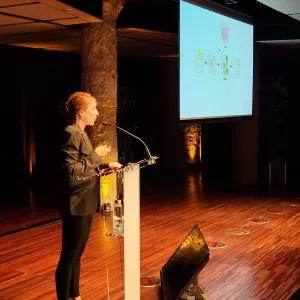The importance of your cover/ motivation letter should not be underestimated. Indeed, it may very well determine whether a busy Principal Investigator (PI) decides to read your CV.
Above all, before sending an application, do some in-depth research into the group you wish to join and tailor your application to the PI’s interests and needs. In this regard, it may be useful to get advice from people who know or who have worked with the PI in question. Use your network to your advantage. Knowledge of the PI’s work and personality may help you use the appropriate tone and to gain focus.
Cover letters are generally structured into different parts. The first statement is always one of formality and sets out the purpose of the letter. This should be followed by details of your current position, place of work and mentor.
A natural progression from this initial statement is to emphasize how your background is aligned to the studies carried out by the research group. You should convey your excitement for learning about lines of research of the new laboratory, but ensure that you balance what you can give to the lab and what you would gain.
Don’t fall into the trap of using heavy flattery as PIs can see through this. The cover letter is your opportunity to sell your skills and your potential so don’t waste space singing the praises of the PI.
When you are writing the letter, put yourself in the shoes of the person who will be reading it. She/he will be interested in establishing whether you are familiar with the field and whether your expertise complements that of her/his current team, and thus will help to deliver the specific outcomes that have been promised to funders. Convince the PI of your proactive capacity, of your ability to work independently, and of your firm belief in being an active team player.
Mention key achievements, your most important paper (or two) or other notable awards. Have you trained more junior researchers? What about public outreach experience? Have you got any lab management experience? Have you written a funded project proposal? And possibly more importantly, was this proposal awarded funding? Ask yourself whether these activities are relevant for this PI or for the centre in question.
Don’t overlook the importance of funding. You may find that the PI finds your profile interesting but cannot cover the costs of a new postdoc position. If you can secure funding then your chances of being accepted are higher.
As you approach the end of the letter say “I am pleased to attach my curriculum vitae, my references, and a list of publications for your perusal.”
When concluding the cover letter, thank the PI for his/her time and consideration and include a standard final statement such as “I look forward to hearing from you/ to having the opportunity to further discuss...”.
Cover letters for postdoc positions can be daunting. Once you have written the letter, get a friend to read it and give you feedback. Alternatively, get in touch with Tanya Yates at the Editorial Support Office (tanya.yates@irbbarcelona.org), she would be pleased to help you.
Check out this article for more information and advice.




